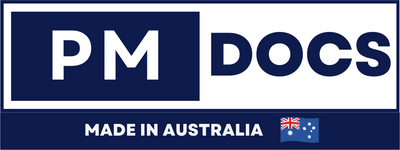Understanding AI Governance Roles And Accountability In Australia
Introduction
Artificial Intelligence (AI) is rapidly transforming industries across the globe, and Australia is no exception. The proliferation of AI technologies is reshaping sectors from healthcare to finance and beyond, presenting both unprecedented opportunities and formidable challenges. As AI becomes more embedded in everyday processes, understanding the roles and accountability in AI governance becomes not just important but essential. In this article, we delve into the landscape of AI governance in Australia, highlighting the key roles, responsibilities, and policies shaping this dynamic domain. By examining these elements, we can appreciate how Australia is positioning itself at the forefront of ethical AI deployment.

Why Australia Needs AI Governance
Australia, like many other countries, is witnessing a surge in AI applications across various sectors including healthcare, finance, and transportation. This surge is not only a testament to the transformative potential of AI but also a reminder of the accompanying risks and ethical dilemmas. With this growth, the potential for misuse and unintended consequences also rises, necessitating robust governance frameworks. Effective AI governance ensures that AI technologies are used responsibly, safeguarding public trust and promoting innovation. Moreover, by establishing clear governance structures, Australia can ensure that AI development aligns with national values and priorities, promoting a sustainable and inclusive digital future.
Key Players In AI Governance In Australia
Several entities play pivotal roles in shaping AI governance in Australia. Understanding these roles is essential for a comprehensive view of the AI policy landscape. These players include government agencies, academic institutions, and industry stakeholders, each contributing unique perspectives and expertise to the governance ecosystem.
1. Government Agencies
The Australian Government is a primary driver of AI governance. Agencies such as the Department of Industry, Science, Energy and Resources (DISER) and the Australian Human Rights Commission are instrumental in developing AI policies and frameworks. These bodies work to ensure that AI technologies are aligned with national interests and ethical standards. Their efforts include drafting legislation, setting regulatory standards, and facilitating public consultations to gather diverse viewpoints. By doing so, they strive to create a balanced regulatory environment that promotes innovation while safeguarding the public interest.
2. Academic Institutions
Australian universities and research institutions contribute significantly to AI governance through research and development. They provide insights into the ethical implications of AI and help in creating guidelines that inform policy decisions. These institutions are at the forefront of exploring the societal impacts of AI, conducting cutting-edge research that identifies potential risks and benefits. Their involvement ensures that AI governance is grounded in scientific research and ethical considerations. By collaborating with policymakers, they help translate complex technical concepts into actionable policy recommendations, bridging the gap between theory and practice.
3. Industry Stakeholders
Private companies and industry groups are also key players in AI governance. They are often at the forefront of AI development and deployment, making their involvement in governance critical. Industry stakeholders work with government bodies to ensure that AI policies are practical and conducive to innovation. By bringing real-world insights and technical expertise, they help shape policies that are both effective and feasible. Moreover, many companies are implementing their own ethical guidelines and best practices, setting standards that can influence industry-wide governance approaches.
Policies Shaping AI Governance In Australia
Australia has implemented several policies and frameworks to guide the governance of AI. These policies aim to balance innovation with ethical considerations, ensuring that AI's transformative potential is harnessed responsibly.
1. Australia's AI Ethics Framework
The Australian Government has developed the AI Ethics Framework, which outlines principles for the ethical use of AI. These principles include fairness, transparency, and accountability. The framework serves as a guide for organizations to develop and use AI responsibly. It encourages businesses to consider the broader societal impacts of their AI systems and to implement measures that promote ethical outcomes. By providing a clear set of guidelines, the framework helps organizations navigate the complex ethical landscape of AI deployment.
2. National AI Strategy
Australia's National AI Strategy outlines the country's vision for AI development and governance. It focuses on building AI capabilities, fostering collaboration between sectors, and ensuring that AI technologies are used in ways that benefit society as a whole. This strategy emphasizes the importance of investing in AI research and education to build a skilled workforce capable of driving innovation. By promoting cross-sector collaboration, the strategy aims to harness the collective expertise of government, industry, and academia, positioning Australia as a leader in ethical AI development.
3. Regulatory Measures
In addition to frameworks and strategies, regulatory measures play a crucial role in AI governance. Regulations ensure compliance with ethical standards and provide mechanisms for accountability. They cover aspects such as data privacy, security, and the use of AI in decision-making processes. By establishing clear legal requirements, these regulations help prevent misuse and protect individual rights. Furthermore, regulatory bodies are tasked with monitoring compliance and enforcing penalties for violations, ensuring that ethical standards are upheld across the AI ecosystem.
Challenges In AI Governance
While Australia has made significant strides in AI governance, several challenges remain. Addressing these challenges is essential for effective governance and the responsible deployment of AI technologies.
1. Balancing Innovation and Regulation
One of the primary challenges is balancing innovation with regulation. Over-regulation can stifle innovation, while under-regulation can lead to misuse and ethical breaches. Striking the right balance is crucial for fostering a healthy AI ecosystem. Policymakers must navigate the delicate task of creating regulations that protect the public while allowing for experimentation and growth. This requires ongoing dialogue with stakeholders to ensure that regulations are adaptive and responsive to technological advancements.
2. Ensuring Inclusivity
AI systems often reflect the biases present in the data they are trained on. Ensuring inclusivity in AI development and governance is essential to prevent discrimination and bias. This involves diverse representation in AI research and policy-making processes. By including voices from underrepresented groups, policymakers can create more equitable AI systems that serve the needs of all Australians. Additionally, efforts to improve data quality and diversity can help mitigate bias and enhance the fairness of AI outcomes.
3. Keeping Pace with Technological Advancements
AI technologies are evolving rapidly, and governance structures must keep pace with these advancements. This requires continuous monitoring and updating of policies to address new challenges and opportunities. Policymakers must remain vigilant, anticipating future trends and preparing for potential risks. This proactive approach will enable Australia to adapt its governance frameworks to emerging technologies, ensuring that AI development remains aligned with ethical principles and societal values.
The Future Of AI Governance In Australia
As AI technologies continue to advance, the governance landscape in Australia will evolve. Future efforts will likely focus on enhancing collaboration between government, academia, and industry. This collaboration will be key to developing comprehensive governance frameworks that address emerging challenges. By leveraging the strengths of each sector, Australia can create a cohesive governance ecosystem that supports responsible AI innovation.
1. The Role of International Collaboration
AI governance is not just a national issue but a global one. Australia's participation in international forums and collaboration with other countries will be crucial for addressing cross-border AI challenges and ensuring global standards for AI governance. By engaging in international dialogue, Australia can contribute to the development of global best practices and learn from the experiences of other nations. This collaborative approach will help harmonize AI governance efforts worldwide, promoting consistency and coherence in ethical standards.
2. Innovation and Ethics in Harmony
The future of AI governance in Australia will aim to harmonize innovation with ethical considerations. By fostering an environment that encourages responsible AI development, Australia can lead the way in creating a sustainable and equitable AI landscape. This will involve promoting ethical AI research, supporting the development of ethical guidelines, and ensuring that ethical considerations are integrated into every stage of the AI lifecycle. By doing so, Australia can set a positive example for other nations, demonstrating that innovation and ethics can coexist and thrive together.
Conclusion
AI governance in Australia is a dynamic and evolving field. With the combined efforts of government agencies, academic institutions, and industry stakeholders, Australia is well-positioned to navigate the challenges and opportunities presented by AI technologies. By understanding the roles and accountability in AI governance, stakeholders can contribute to a future where AI is used responsibly and ethically. As AI continues to transform society, effective governance will be essential for ensuring that its benefits are realized in a way that aligns with public values and priorities.




